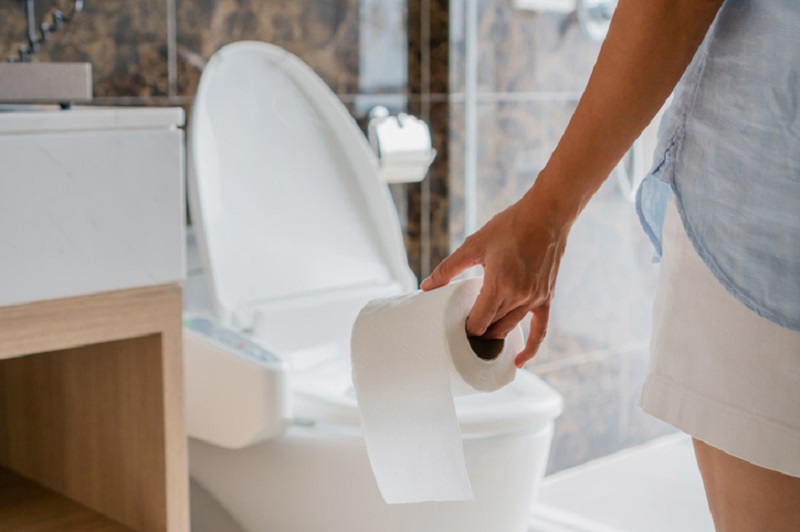Frequent Nighttime Bathroom Trips Could Signal Heart Disease
Frequent nighttime trips to the bathroom, known as nocturia, can be more than just an inconvenience; recent studies suggest that it may be linked to high blood pressure and even heart failure. While many people assume it’s just a result of drinking too much water before bed, the issue can go deeper than that.
Ideally, adults should aim for six to eight hours of uninterrupted sleep each night. However, when you regularly wake up to use the bathroom, it disrupts your sleep cycle. This disruption can lead to fatigue, difficulty concentrating, mood swings, and increased vulnerability to illnesses.
Nocturia is a prevalent issue, affecting approximately 50 million people in the United States alone, according to the Cleveland Clinic. It is most common among adults over 50, and it tends to affect men more than women after that age. Prior to 50, nocturia is more common among women.
What Causes Nocturia?
There are several potential causes for nocturia, including:
- High fluid intake before bed: Drinking too much water or other fluids in the evening can increase the likelihood of needing to use the bathroom at night.
- Alcohol or caffeine consumption: Both alcohol and caffeine can stimulate the bladder and lead to more frequent urination.
- A small bladder: Some people naturally have a smaller bladder, which can result in frequent bathroom trips.
- High blood pressure: High blood pressure can cause fluid retention in the body, leading to nocturia.
- Diabetes: Both Type 1 and Type 2 diabetes can lead to nocturia due to high blood sugar levels, which increase urine production.
- Pregnancy: The growing uterus can put pressure on the bladder, causing frequent urination, especially in the later stages.
- Water retention: Fluid buildup in the body can increase the frequency of bathroom trips.
- Sleep apnea: Interrupted breathing during sleep can lead to increased urine production at night.
- Benign prostatic hyperplasia (BPH): In men, an enlarged prostate can cause nocturia.
- Medications: Certain medications like diuretics, lithium, or excessive vitamin D intake can contribute to nocturia.
If you experience frequent nighttime urination, it’s important to investigate what might be causing it.
Nocturia and Heart Health
While it might seem like your bladder and heart aren’t connected, recent research shows there is a link between nocturia and heart-related issues. According to Dr. Satoshi Konno, a study conducted at Tohoku Rosai Hospital in Sendai, Japan, found that nocturia could be associated with elevated blood pressure and fluid retention in the body. The study revealed that people who woke up to urinate during the night had a 40% higher chance of having hypertension. Furthermore, the more frequently they woke up to use the bathroom, the greater the risk of high blood pressure.
The study didn’t definitively establish a causal relationship between nocturia and hypertension, but it did suggest a correlation. Researchers also noted that the findings may be influenced by lifestyle, salt intake, ethnicity, and genetic factors, particularly in populations like Japan, where hypertension affects a significant portion of the adult population.
When Should You Be Concerned?
If you occasionally wake up to use the bathroom, it’s likely nothing to worry about. However, if you find yourself waking up multiple times a night, it could be a sign of an underlying health problem. According to the Cleveland Clinic, here are some signs that nocturia may be a symptom of something more serious:
- Frequent urination at night: If you’re waking up more than twice a night to pee, it’s worth checking with a doctor.
- Swelling in your legs or feet: This could be a sign of fluid retention, which may be linked to heart or kidney issues.
- Shortness of breath: Especially if it occurs when you lie down, this could indicate heart problems.
- Daytime fatigue or dizziness: If you’re feeling tired or lightheaded during the day, it might be due to disrupted sleep caused by nocturia.
If you’re experiencing any of these symptoms, it’s important to seek medical advice to rule out serious health conditions.
What Can You Do?
Managing high blood pressure and other underlying conditions can help alleviate nocturia. Here are some steps you can take to reduce nighttime bathroom trips:
- Monitor your blood pressure: High blood pressure often has no obvious symptoms, so it’s essential to keep track of it regularly.
- Limit salt and caffeine intake: Too much sodium can lead to fluid retention, and caffeine can act as a diuretic, causing you to urinate more frequently.
- Stay active: Regular exercise can improve circulation, reduce fluid buildup, and keep your heart healthy.
- Cut back on fluids before bed: Try limiting fluid intake in the evening, especially alcohol and caffeine, to reduce nighttime urination.
- Get a check-up: If nocturia is interfering with your sleep, a doctor can help determine if high blood pressure or another underlying issue is to blame.
While waking up occasionally to use the bathroom is normal, frequent nighttime urination could indicate high blood pressure or other heart-related issues. If you find yourself making multiple trips to the bathroom each night, it’s important to consult with a healthcare professional. Addressing the root cause could improve your sleep and overall health.
